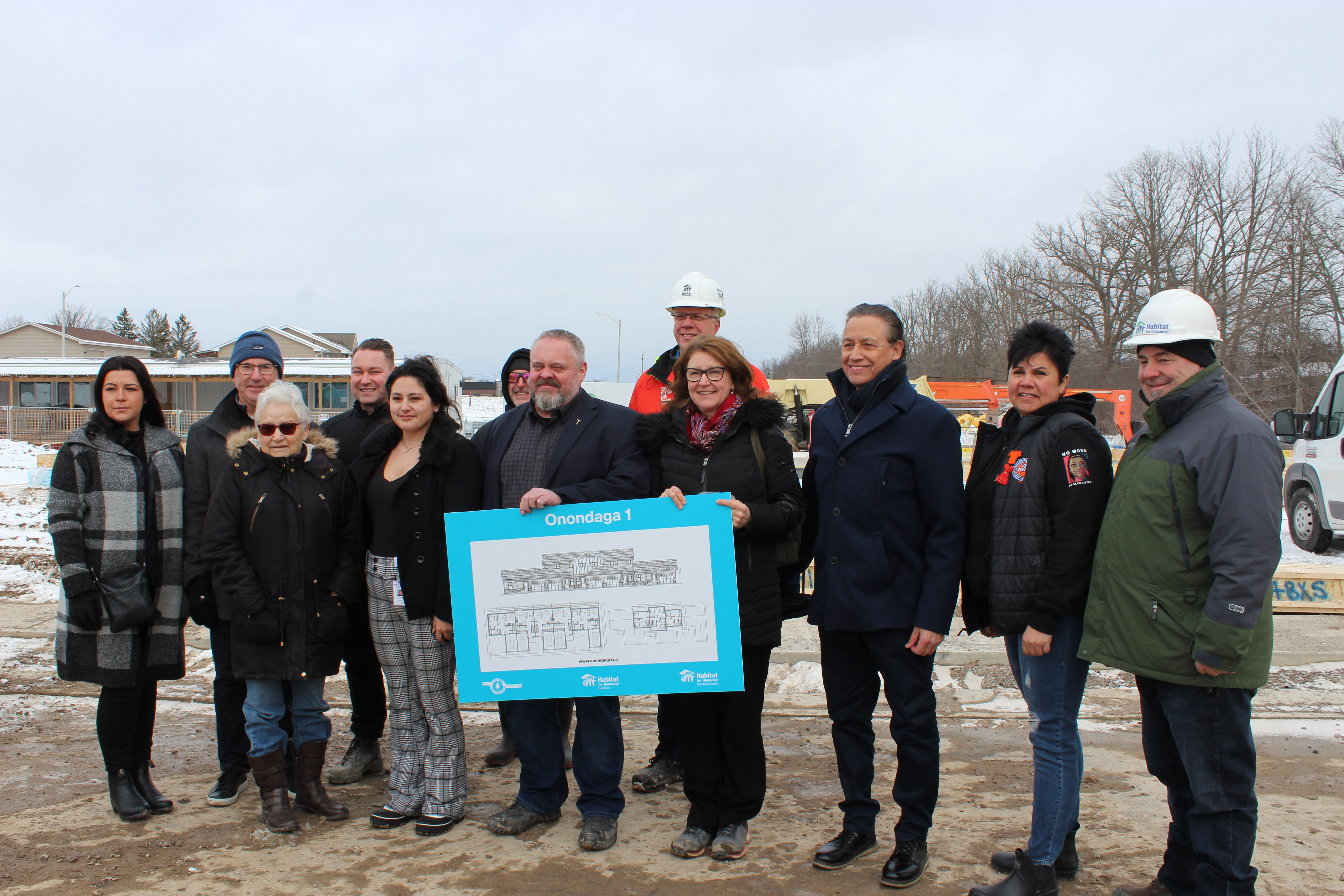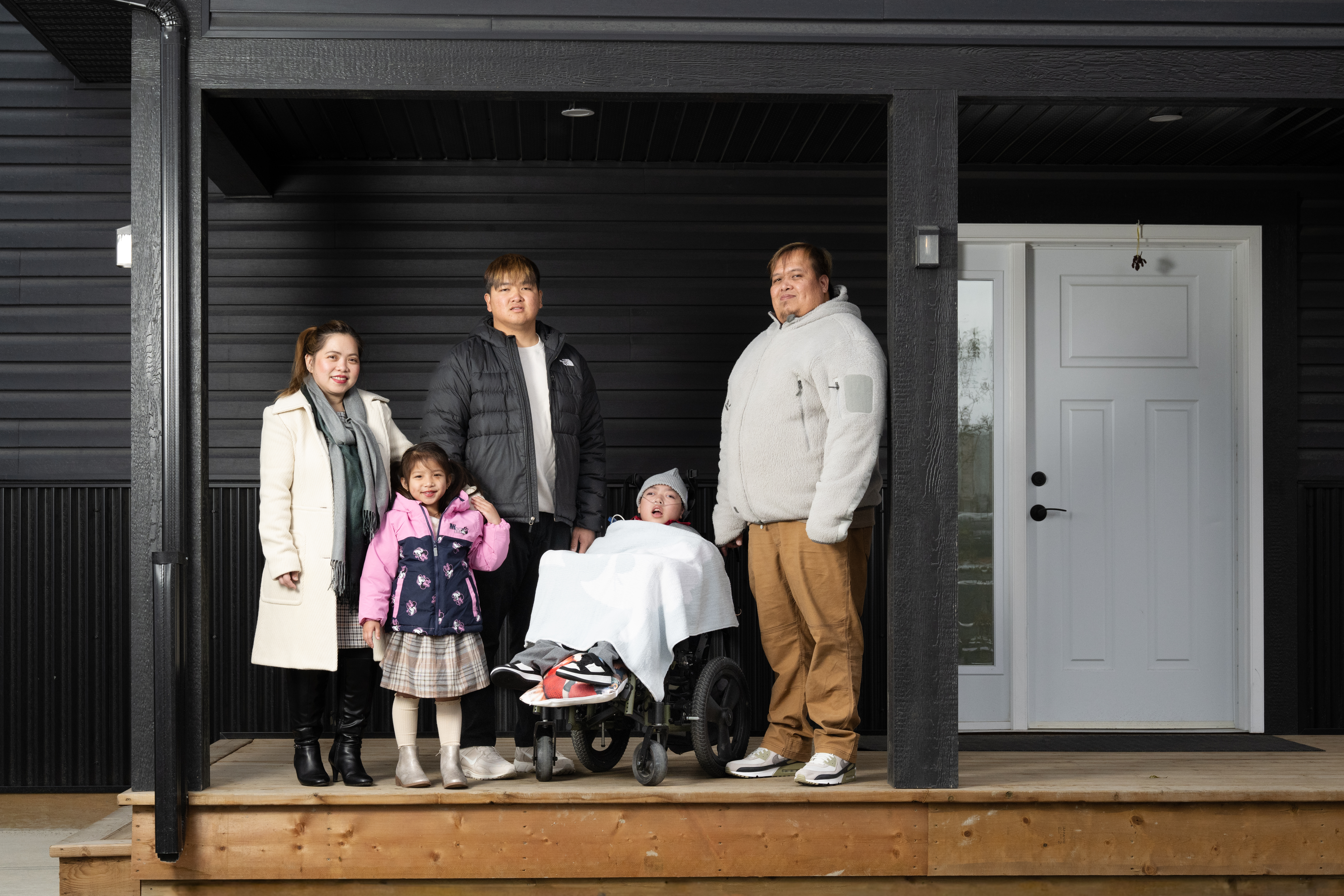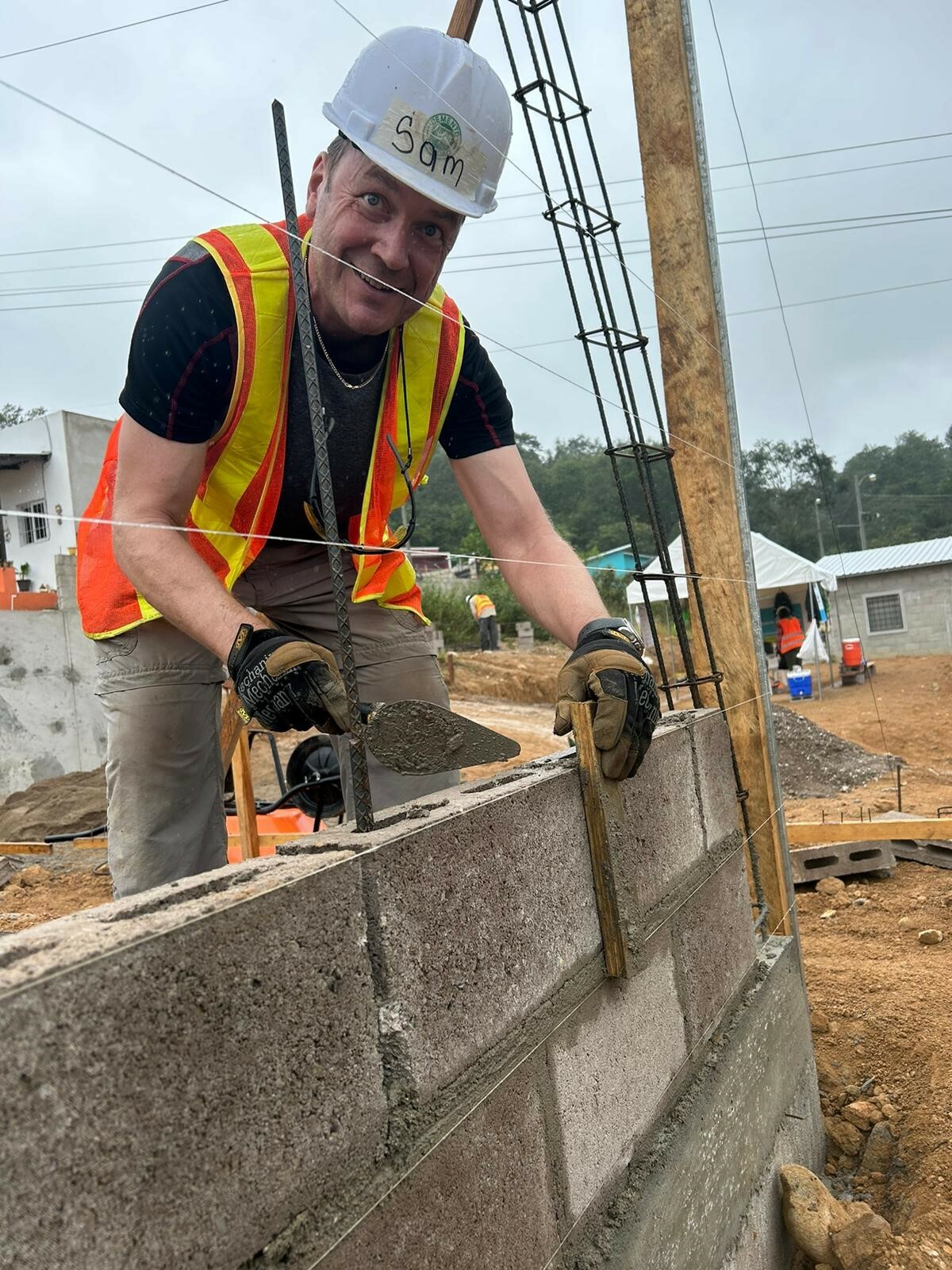Empowerment and hope through housing
Located along the banks of the Grand River in Ontario, Six Nations of the Grand River is home to all six Haudenosaunee Nations (Mohawk, Oneida, Cayuga, Seneca, Onondaga, and Tuscarora). The most populous First Nation in Canada, it has more than 28,000 band members, including 12,000 members who live on reserve. Many more want to come home.
Living on reserve not only provides a support network of relatives and friends to Haudenosaunee families, it helps them maintain Haudenosaunee heritage by preserving language and ceremonial traditions.
But decades of colonial policies and chronic underfunding by federal governments, who have historically been responsible for Indigenous services, has led to a housing crisis among First Nations. People in First Nations communities are four times more likely to live in crowded housing and six times more likely to live in housing in need of major repairs than non‑Indigenous people.
This is playing out on Six Nations, where 400 families are on a 10-year waiting list for adequate housing. “I wouldn’t take 400 as the real need,” says Six Nations Housing Supervisor Andrew Powless. “Everyone is discouraged to even put their names on that list because of that wait.”
In search of housing solutions, Six Nations approached Habitat for Humanity Hamilton for a possible collaboration. Habitat Hamilton had never previously worked on reserve, and it took many years of building trust, and re-imagining Habitat policies – including the need for land ownership – before construction began. Throughout the discussions, Habitat was committed to supporting Indigenous community-led housing solutions.

The effort to imagine a new kind of collaboration paid off. In 2023, acting as contractors, Habitat Hamilton, together with Habitat for Humanity Heartland Ontario, built a five-unit townhome called Onondaga to serve as Six Nations Housing rentals in close proximity to Ohsweken, where many shops and services are located. Habitat and the community are now building a second phase – another five-unit townhome to be ready by August 2024 – with a third phase in the works.
Throughout the project, Habitat Hamilton is committed to working with Indigenous skilled labourers and partners. On the second phase, it is sub-contracting out the roofing, siding, eavestroughs, driveway asphalt and installation of gas meters and hot water tanks to Six-Nations based companies. To accommodate larger and multigenerational families, it has incorporated finished basements with built-in bedrooms and egress windows, and improved electrical, and HVAC systems.
Habitat Heartland is also getting ready to support Six Nations Housing with critical repairs on three homes. This work includes replacing flooring and handrails, fixing doors, painting, and repairing kitchens and bathrooms. It also includes solutions to overcrowding, such as splitting master bedrooms into two smaller ones, and safety measures such as ensuring basement bedrooms are up to code.
Sean Ferris, CEO of Habitat for Humanity Hamilton says he’s very appreciative of the opportunity to build on Six Nations. “We owe a debt to First Nations,” he says. "That we've moved on to a second and now potentially a third phase to me is affirmation that we are building trust.”
Andrew, Six Nations’ housing supervisor, adds that the collaboration with Habitat provides more than housing – it's a source of empowerment and hope for the community, and the families moving into the homes. He recalls a single mother who was struggling to provide housing for her family. After moving into an Onondaga townhouse, “she was just so excited that she was able to have a place of her own.”
***
As part of our commitment to Reconciliation, Habitat for Humanity in Canada recognizes the diverse housing needs of Indigenous families. We deliver housing solutions through our Indigenous Housing Partnership that are designed by Indigenous communities for Indigenous communities.


